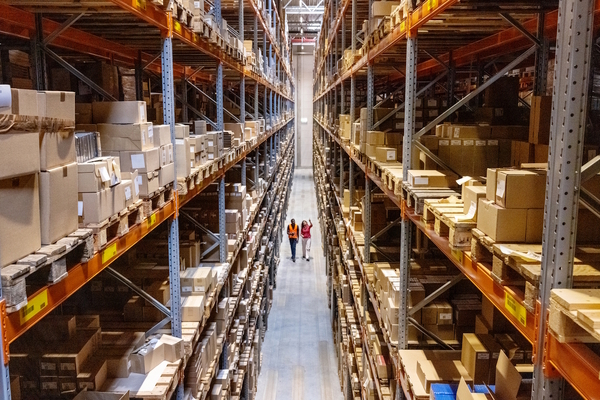Building a thriving tech ecosystem in the UK

Gustav Westman at BrightBid argues that the UK is increasingly well placed to be the location for the world’s next Silicon Valley
All signs point to the fact that the UK is growing its prominence in the tech landscape. Already, the country is home to twice as many businesses focusing on AI products and services than any other European country, and the figure keeps growing.
With global companies from OpenAI to Salesforce investing in the UK and developing their operations here, it’s clear that it’s seen as fertile ground for future development. The Government has also stepped up to support this growth, sketching out plans to turn parts of the UK into the next Silicon Valley and announcing a series of investments to advance AI, totalling £54 million.
These are encouraging developments; but will the UK be able to deliver on their promise?
Business investment alone is not enough to turn the country into a tech superpower – the building blocks need to be in place across all areas to lay a solid foundation for future growth, and there are already some question marks over them.
Optimising tech infrastructure
In August, research emerged suggesting that the UK might already be falling behind on the 5G rollout. These fifth-generation mobile phone networks are crucial for supporting the ambitions to attract the best in tech talent and investment and create thriving tech hubs across the country.
Lack of investment from mobile operators, pressure from the Government, and a ban on importing kit from Chinese manufacturer Huawei have all contributed to the lack of focus.
5G will play a key role in helping technologies across industries advance. It will also be a crucial enabler for AI-related innovation, helping improve the efficiency and effectiveness of AI-driven systems. According to ABI Research, the total output of the AI and 5G combination will reach $17.9 trillion, or 0.7% of the global GDP, by 2035.
Together, these technologies can transform the UK tech landscape, each helping fuel advancements in the other. However, it will be AI projects that are more likely to be held back by the lack of adequate 5G networks. While we have to wait to see the full impact of these decisions, it’s easy to imagine that it could put the brakes on the tech industry, both in terms of product development as well as new investment.
Making investment go further
But it’s not just the lack of 5G that contributes to the success of the UK’s tech ambitions. Other aspects, from infrastructure to education and global networks, need to be in place to give it wings.
Let’s look at training, for example. The UK needs workers skilled in AI and other advanced technologies to ensure that the companies that invest in the country have a workforce capable of turning that investment into reality.
At the moment, the tech sector is battling an acute talent shortage, with nearly 95% of employers recruiting for tech roles struggling to find suitable candidates. Investment in technology needs to extend to people if the industry is to have a workforce capable of fuelling progress. Education and development is crucial in driving further innovation and upskilling the existing workforce to respond to this demand.
What’s more, education is also needed to grow the understanding of new technologies and their role in our society, which again will help propel innovation in new areas.
Education does seem to be developing however, the latest A-Level results have shown that computer related subjects are more appealing following a 16.7% increase in students being accepted onto computer science, software engineering, AI and IT degrees this year. A welcome change to support the next generation of technologists and fill the skills gaps.
Comprehensive approach
Many of the recent stories about investment in technology have focused on AI and been centred around London. In April, the Government unveiled £100 million in funding to form a task force to help the UK build and adopt the next stage of safe AI. It hopes that the investment will help build up sovereign capabilities, ensure broad adoption of safe foundation models, and ultimately help cement the UK’s position as a tech superpower by 2030.
While this is good news for all AI businesses, other industries will also need funding to build their capabilities to leverage (or simply co-exist with) AI-driven solutions and other future technologies – AI may be the technology of the future but it can’t deliver its full potential in isolation.
The same goes for location – the investment in technologies, education and infrastructure needs to extend beyond London if we want the UK to become a true global tech hub. Michael Gove recently announced plans to turn Cambridge into the UK’s Silicon Valley to fuel growth in life sciences and technology sectors and boost the golden triangle of science hubs between London, Cambridge and Oxford.
While additional investment is welcome, this approach encourages the pooling of tech expertise to the south of the country, potentially stifling growth in other regions and extracting them of wealth, experience, and brainpower. Giving people and businesses across the country equal access to the infrastructure and education that fuel tech innovation would help create not just one Silicon Valley but a multitude of little valleys of excellence across the country.
Global connections
Finally, being a major tech hub is not just about the expertise you have, it’s about having the connections needed to sell, export and enhance it. The Government, as well as UK-based businesses, need to actively seek to form technology and creative partnerships with other global companies.
Having these networks in place will help boost sustainable trade across Europe and beyond, attract and exchange talent and ideas, and ensure that the UK continues to play a prominent role in the right conversations surrounding tech developments and the future of AI.
The UK is already a promising location for tech companies of all sizes, from emerging AI startups to global leaders. For these positive developments to continue, we can’t afford to lose focus on the factors that enable them.
Building the next Silicon Valley is an achievable goal, and by ensuring that the infrastructure, education, and networks are in place to support it, the UK’s development doesn’t need to stop there.
Gustav Westman is CEO BrightBid
Main image courtesy of iStockPhoto

Business Reporter Team
Most Viewed
Winston House, 3rd Floor, Units 306-309, 2-4 Dollis Park, London, N3 1HF
23-29 Hendon Lane, London, N3 1RT
020 8349 4363
© 2025, Lyonsdown Limited. Business Reporter® is a registered trademark of Lyonsdown Ltd. VAT registration number: 830519543





